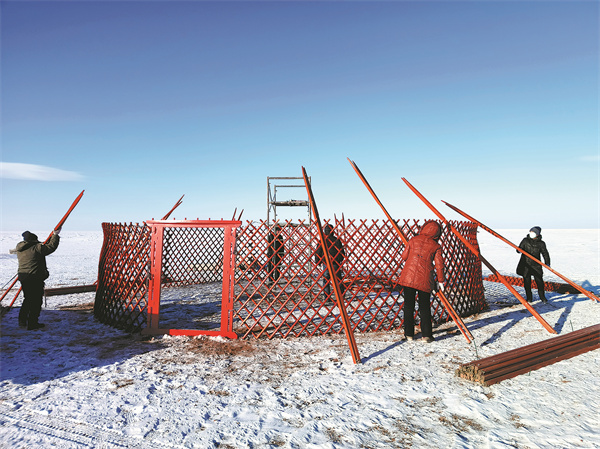Yurt culture continues to stand the test of time
Brothers restore and manufacture nomadic structures to include modern updates, giving public a peek into history, Yang Feiyue reports.
By Yang Feiyue | China Daily | Updated: 2024-11-02 10:38

"Even though residents now live in concrete houses as their living standards improve, some still need a yurt placed next to their house to receive guests or they buy it as a wedding gift," Ban Fenggong notes.
"Additionally, with the rise of the culture and tourism industries, many guest-houses in Inner Mongolia and Mongolian restaurants in other places, including Shanghai and Hong Kong, are our clients," he adds.
The two brothers have also continued to innovate based on traditions to better meet market demand. They incorporate mechanical equipment to improve production efficiency and have developed a blend of wool and synthetic fibers to address the problems of wool attracting insects and sending out an unpleasant odor.
To enrich yurt decorative art, they incorporate computer engraving, painting and metal.
To date, they have expanded the types of yurts from a dozen styles to over 150. They produce 100-200 yurts for customers nationwide each year.
The rising business has also created more job opportunities for local herdsmen.
They have hired more than 20, each spending a few months working on yurts when they aren't working on farming.
























